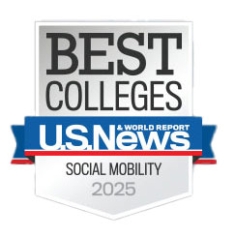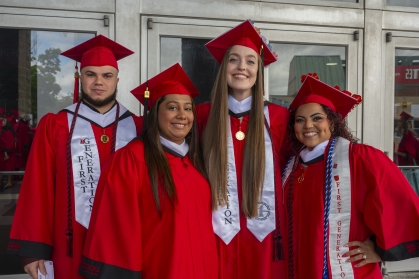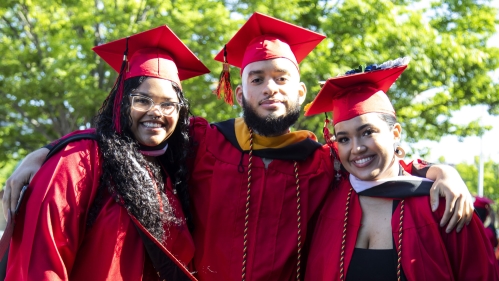Higher education has always been about preparing students to think critically, solve problems, and contribute meaningfully to society. For generations, universities have been places where intellectual and personal growth intersect, equipping students with the skills necessary to succeed in their chosen disciplines. However, in recent years, higher education may have shifted too heavily toward an emphasis on the transactional side of college: the idea that a degree is solely a path to a good job and a higher salary. While those outcomes are certainly important, they fail to capture the full breadth of what a college education has to offer.

At institutions like Rutgers-Camden, which is ranked #15 nationally in promoting social mobility[1], the value of higher education extends far beyond simply earning a degree. It’s about opening doors to new opportunities, fostering personal growth, and contributing to long-term societal impact. To this end, we must return to a balanced view of higher education—one that acknowledges both the practical and intangible aspects of the experience.
The financial challenges that students face, such as the cost of tuition and the pressure of balancing work with academics, are real and deserve attention. And yet, even in the face of these challenges, a college degree offers transformative benefits. On average, individuals with a bachelor’s degree earn $1.2 million more over their lifetimes than those without one[2]. Beyond this financial advantage, degree holders also enjoy greater career stability, lower unemployment rates, and access to benefits like employer-sponsored health insurance and retirement plans.
Rutgers-Camden’s focus on social mobility underscores the broader impact of higher education. Graduates of the university earn an average salary of more than $84,000, nearly double the national median income, and typically begin their careers with an average salary of $64,000 within a year of graduation. These outcomes reflect the university’s dedication to ensuring that its graduates are not only financially secure but also equipped to make meaningful contributions to society. In recent years, employers have shown a preference for candidates from varied academic fields and with a solid liberal arts foundation[3]. Rutgers–Camden graduates are well positioned to benefit from this continuing trend.
For first-generation students, the college experience is often more than just an academic achievement—it represents a significant personal and familial milestone. Higher education offers the opportunity to break barriers, redefine futures, and elevate communities. The critical thinking, broadened perspective, and problem-solving skills students gain during their studies are invaluable, extending well beyond the classroom and influencing both personal and professional success.

As we move forward, it’s important to highlight the lasting impact of higher education. Yes, a degree can provide financial stability and career opportunities—whether in STEM fields or in the humanities[4]. But its true value lies in the broader experience it offers. Institutions like Rutgers-Camden demonstrate how higher education can serve as a powerful tool for individual growth and societal advancement. By reframing the narrative, we ensure that students and families understand the full scope of what higher education can offer—not just a pathway to a paycheck, but a life-changing journey that shapes minds, builds communities, and prepares students to navigate the complexities of a rapidly changing world.
Works Cited:
[1] U.S. News & World Report. 2025 Top Universities Impacting Social Mobility. U.S. News & World Report, 2025, https://www.usnews.com/best-colleges/rankings/national-universities/social-mobility.
[2] Nietzel, Michael T. “New Study: College Degree Carries Big Earnings Premium, but Other Factors Matter Too.” Forbes, 11 Oct. 2021, https://www.forbes.com/sites/michaeltnietzel/2021/10/11/new-study-college-degree-carries-big-earnings-premium-but-other-factors-matter-too/.
[3] Anders, George. “That ‘Useless’ Liberal Arts Degree Has Become Tech’s Hottest Ticket.” Forbes, 29 July 2015, https://www.forbes.com/sites/georgeanders/2015/07/29/liberal-arts-degree-tech/.
[4] Krislov, Marvin. “Why the Humanities Matter More Than Ever—Even When You Keep Hearing Otherwise.” Forbes, 10 Nov. 2023, https://www.forbes.com/sites/marvinkrislov/2023/11/10/why-the-humanities-matter-more-than-ever-even-when-you-keep-hearing-otherwise/.
